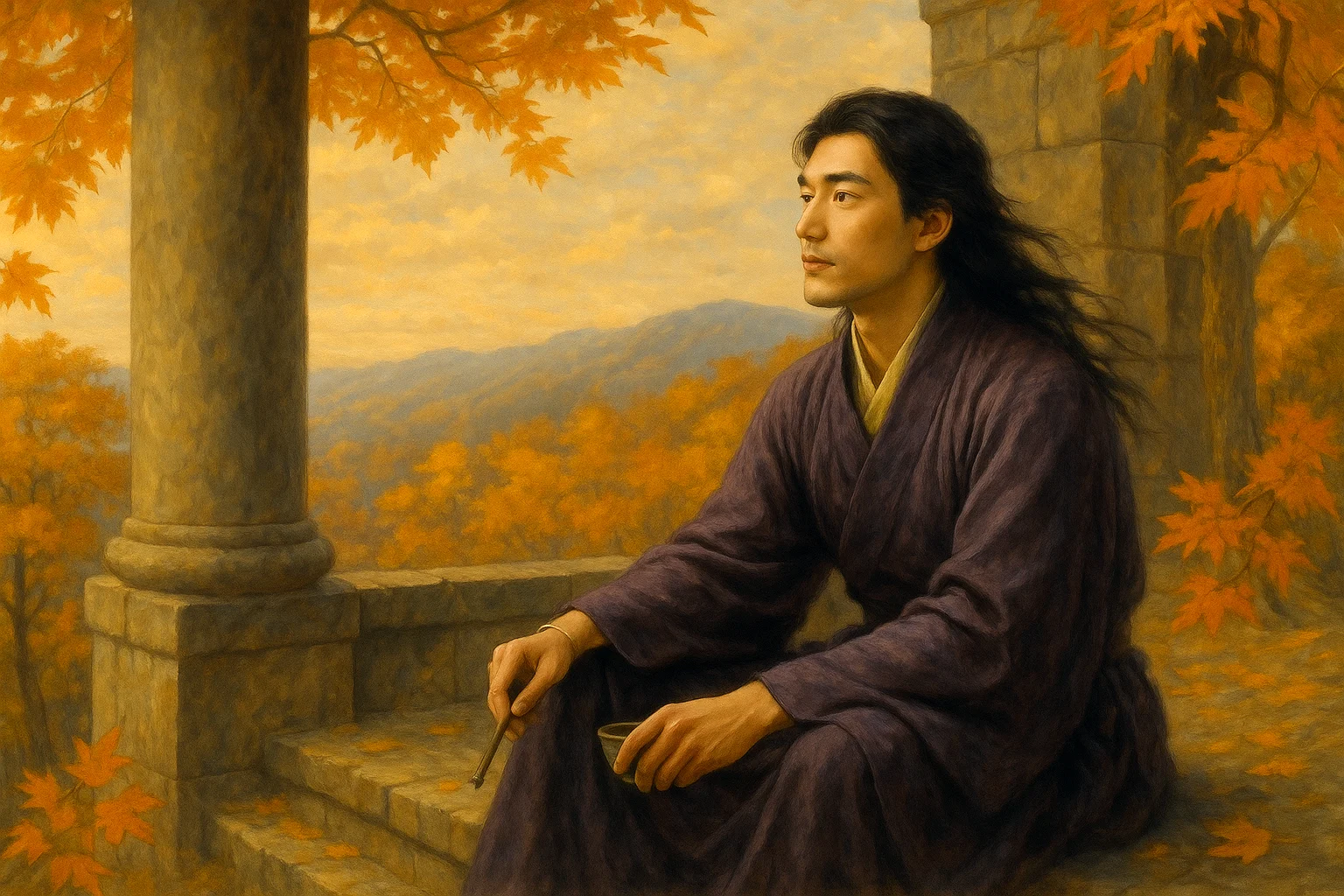Though journeying on different roads apart,
At dusk we each long for home’s warm heart.
Tears threaten now to fall this morning’s light—
I know your robes are wet from sorrow’s flight.
Original Poem
「客行赠人」
耿玮
旅行虽别路,日暮各思归。
欲下今朝泪,知君亦湿衣。
Interpretation
This poem was composed during the High Tang period, likely during one of Geng Wei's frequent travels when he and a companion had to part ways. As a scholar-official constantly on the move, Geng Wei experienced many such separations - this brief but poignant verse captures the profound friendships and hardships of Tang literati life. With remarkably concise yet suggestive language, it conveys intense longing and emotional resonance that remains deeply moving.
First Couplet: "旅行虽别路,日暮各思归。"
Lǚ xíng suī bié lù, rì mù gè sī guī.
Though our paths diverge on this journey,
At dusk we both yearn for home equally.
The contrast between "diverging paths" (别路) and "yearning for home" (思归) creates emotional tension. The travel setting at dusk enhances the scene's visual and emotional impact. "Yearn for home" suggests both literal homesickness and metaphorical longing for their shared companionship.
Second Couplet: "欲下今朝泪,知君亦湿衣。"
Yù xià jīn zhāo lèi, zhī jūn yì shī yī.
My tears begin to fall this morn -
I know they stain your robe as well, forlorn.
This couplet forms the poem's emotional climax. Rather than directly expressing his own sorrow, the poet projects the feeling onto his friend through "stain your robe" (湿衣), creating a powerful, wordless connection. This single line masterfully conveys a depth of mutual understanding that transcends speech.
Holistic Appreciation
This compact five-character quatrain, though brief, brims with restrained emotion, capturing the profound camaraderie between traveling companions facing separation. Rather than depicting parting's anguish with dramatic strokes, the poet employs subtle psychological insight and suggestive imagery, weaving a soft melancholy into the mundane tapestry of journey. Through the portrayal of "sunset stirring thoughts of home" and "tears threatening to fall", the poem conveys friendship's ineffable yet mutually understood affection—deeply felt and profoundly genuine.
Artistic Merits
- Subtle and Suggestive, Emotion Resonant Beyond Words: Without once naming "sorrow", each line breathes the ache of separation, exemplifying the Tang poetic mastery of "imbuing scenes with feeling".
- Balanced Parallelism, Precise Diction: The couplet "Today my tears may fall, / And I know your robe grows damp" flows with natural emotional cadence, its craftsmanship nearly invisible.
- Strong Empathy, Mood and Scene Fused: By aligning "shared longing for home" with "dampened robes", the poem forges emotional universality, inviting readers to inhabit its quiet heartache.
Insights
This poem teaches us to cherish the authentic bonds forged amid life's transience. Where paths diverge, true companions remain attuned—sharing unspoken joys and sorrows even at crossroads. Geng Wei's plainspoken verse reminds us: emotion's power lies not in eloquence, but in mutual recognition. In today's hurried world of fleeting connections, such delicate yet profound expression feels more vital than ever.
About the poet

Geng Wei (耿湋, dates unknown), a Tang dynasty poet from Yongji, Shanxi, was among the "Ten Great Talents of the Dali Era." Renowned for his mastery of five-character regulated verse, his poetry is distinguished by its economical diction and tranquil imagery. While the prevailing style of Dali poetry tended toward austerity and desolation, Geng Wei developed a distinctive voice marked by understated naturalism.











